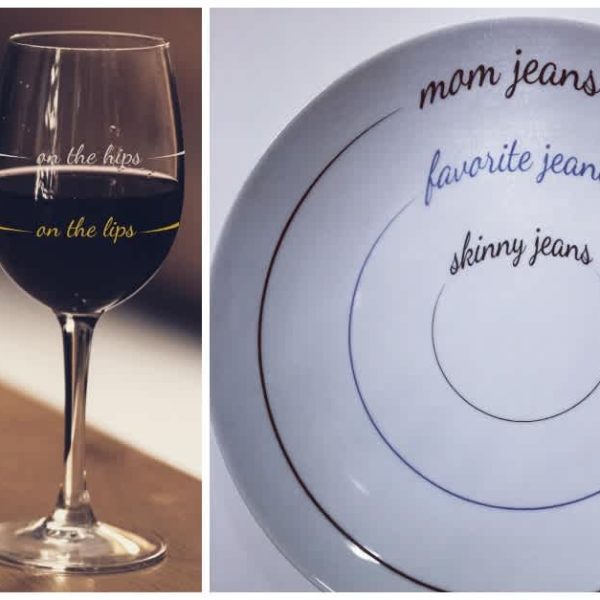What is diet culture?
Diet culture is a whole lifestyle and belief system built around weight loss and glorifying being or trying to be thin over all else. Diet culture is all around us, every single day. Sometimes it’s easy to spot and other times we may not recognize it. Diet culture dictates that we have to be thin to be beautiful, happy, and healthy, none of which is anywhere near true. Of course this also means that if you’re fat you’re ugly, miserable and unhealthy, which is just absurd.
Diet culture isn’t usually as straightforward as going on a diet. It’s any number of insidious ideas that occupy our thoughts and actions. It would take forever and a day for me to completely describe diet culture but I can give you a few random examples and you’ll get the gist of it:
- Feeling guilty because of something that you ate that wasn’t considered “healthy” or “clean”
- Having to do grueling exercise to “burn off” some food you ate or earn the right to eat something
- Assuming someone is healthy because they’re thin and assuming someone is unhealthy because they’re fat
- Assigning moral values to food and the person eating the food
- Worrying about macronutrients in everything you eat
- Admiring or judging people for their food choices
- Telling people you’re “down ## pounds” expecting praise
- Restricting certain foods or whole food groups talnbout you’re not on a diet, it’s a “lifestyle change”
- Thinking about your weight and stressing about what to eat 24/7
- Commenting on other people’s bodies (it doesn’t matter if it’s positive or negative)
- Not recognizing that exercise is for health but not weight control
- Holding off until you lose weight before you can do something like go on a trip, buy new clothes or try a new fun activity
- Pretending that some nasty diet food tastes good or “yummy” only because you think it’s considered healthy and it makes you look good to others
- You have food rules, cheat days and “resets”
Brief History of Diet Culture and its Racist Roots
Diet culture has existed for centuries in some way, shape or form but really began to take hold when religious zealot Sylvester Graham (the creator of the graham cracker) sought to tame the sexual appetites of Americans. He believed and taught that gluttony, lust, and materialism were making people physically ill. So, he constructed a completely and literally bland diet of fruits, vegetables and whole grains, no meat, spices or alcohol. Even black pepper was prohibited. The puritanical Graham diet attracted a cult of followers seeking to be pure and moral.
In the middle of the 18th century racist whites were on the hunt for pseudo science to support their claims of superiority over black and brown people. According to Sabrina Strings, author of “Fearing the Black Body: The Racial Origins of Fat Phobia”:
“inferior races have no self-control … because of how interested they are in sex and food. This was really the beginning of linking what was considered an unruly type of fatness to Blackness.”
These attitudes have carried over up to today, in the wellness world, which is dominated by skinny white women. Do a search for “wellness” and you will find any number of the thinnest, palest women eating salad or drinking green smoothies and laughing. Or she’s doing a yoga pose or skipping through the market with a basket full of fresh veggies. Why is this a problem? Because after so much bombardment of the same images imply that that no other way to be healthy or experience wellness. Diet culture enforces the idea that anything outside of the typical cliche imagery of wellness is simply not valid.
Most approaches to wellness ignore or criticise cultures and cuisines that don’t fit the banal, whitewashed rendition of wellness that the diet industry presents to the world. They go through great lengths to convince the world that African, Caribbean and Latin American cuisines are inferior to their contrived unseasoned, flavorless yet colorful melange of vegetables and fruits. The message is that you can’t possibly be healthy and also honor rich ethnic food traditions. And you have to do yoga. And you need to be able to afford expensive luxury spa treatments. And exercise, exercise, exercise!
Promoting one standard of beauty over all others isn’t a thing by accident. It’s very intentional in its othering of everything that is not thin and white. There is an artificial hierarchy of acceptable bodies and there’s no surprise, black women are at the bottom.
Diet Culture and Sexism
Diet Culture is also sexist. It’s a useful tool to oppress women by imposing impossible demands, so that they will be distracted from competition with men or creating any meaningful change.
According to Naomi Wolf in The Beauty Myth:
“A culture fixated on female thinness is not an obsession about female beauty, but an obsession about female obedience. Dieting is the most potent political sedative in women’s history; a quietly mad population is a tractable one.”
Diet culture maintains confusion about health and food, and this also, is not a mistake. There is a multi-billion dollar industry out here thriving on telling people that they’re not good enough, won’t find happiness, or are just not accepted the way they are. And this translates into sales of a myriad products, supplements, plans, books, and more! I ain’t mad at them but they won’t be getting rich at the expense of my health and well being. And this is why I am writing this. More and more black women are realizing that diets just don’t work. The hard part comes when we are asking, “well, what now?”
How to Escape Diet Culture
Emerging from the chaos of diet culture requires a complete change in mindset. It’s not easy to challenge every single thought going through our heads, filtering out the bs and also create a way forward through uncharted territory. Abandoning diet culture does not translate into letting yourself go, sacrificing health or eating yourself to death. Here’s what to do:
- Clear out all media, social media, magazines, etc. of all diet talk. Unfollow all of those Instagram gurus and unsubscribe from all diet-y newsletters.
- Challenge the food police. Don’t let them influence what you do and don’t eat.
- Replace food rules with mindfulness and intuitive eating. Retrain yourself to recognize hunger and fullness and trust your body to send these signals.
- Heal your relationship with food.
- Build your confidence around something other than weight.
- Accept your body as is. This is not the “love your body” movement. View your body as neutral, and not for anyone else’s gaze.
- Learn about rich food cultures and traditions and incorporate them for variety.
- Experiment until you find movement that you enjoy, not for burning calories.
- Connect with like-minded women for support and inspiration.
- Stop monitoring your weight, at least for now.
Abandoning diet culture for your health and sanity can be a little tricky, because it’s not about letting yourself go and eating everything in sight and settling for living your life at the biggest you’ve ever been. It’s a balance that only really works when it becomes carefree. But the good thing is that you can focus on getting more pleasure from food, not less. Want to learn more?


 I’m LifeBliss Lisa, Happiness Lifestyle Coach
I’m LifeBliss Lisa, Happiness Lifestyle Coach